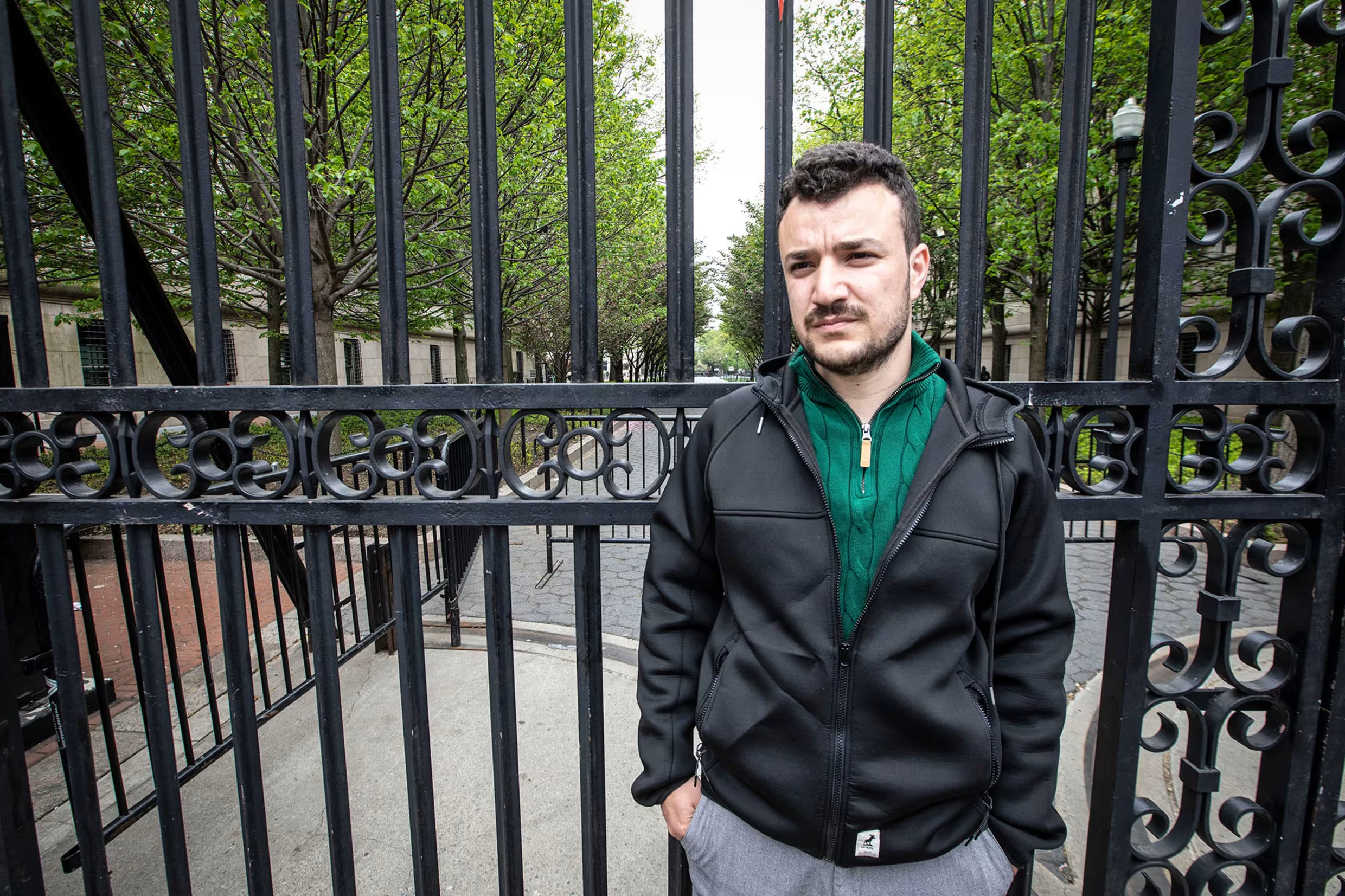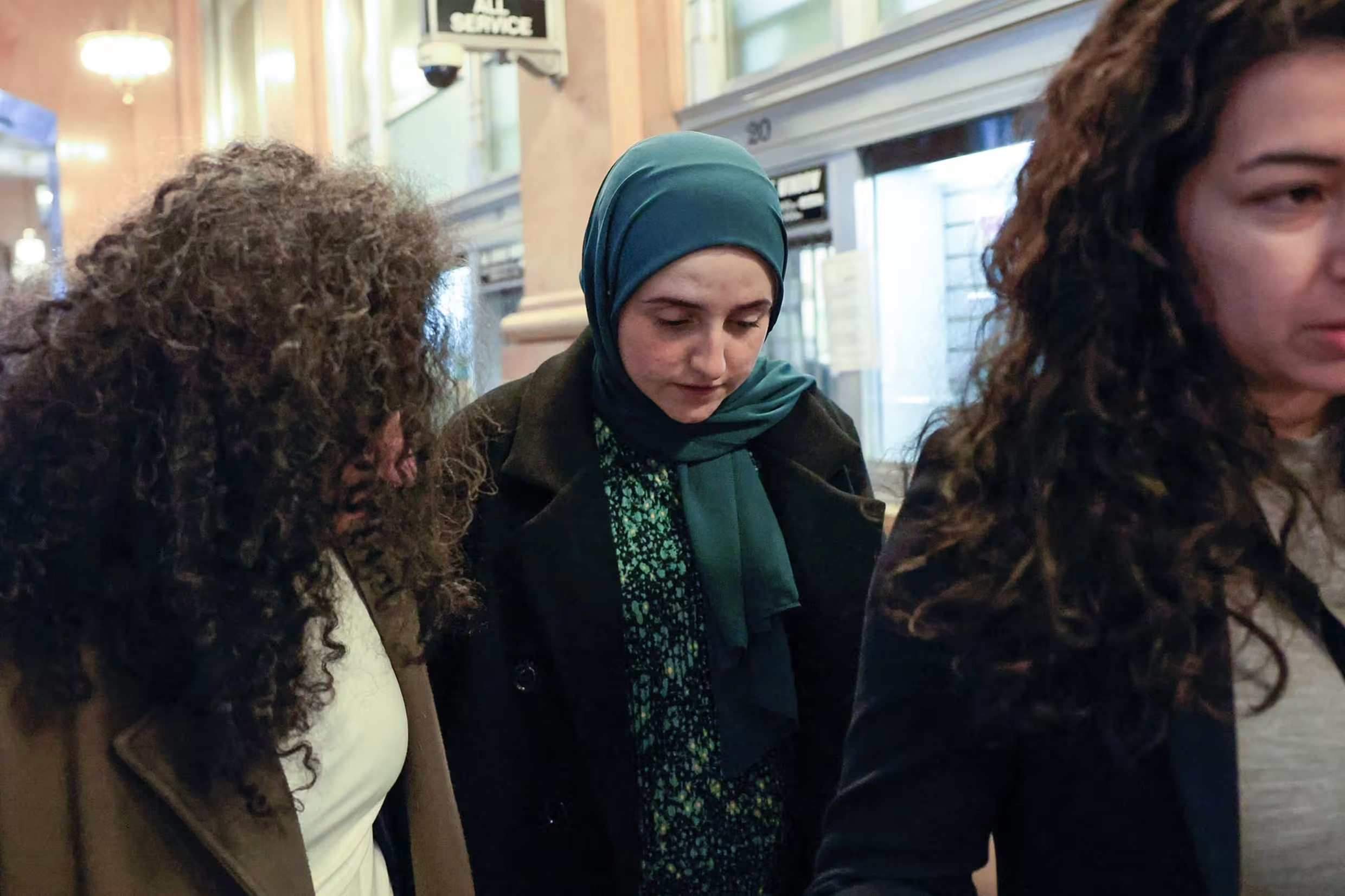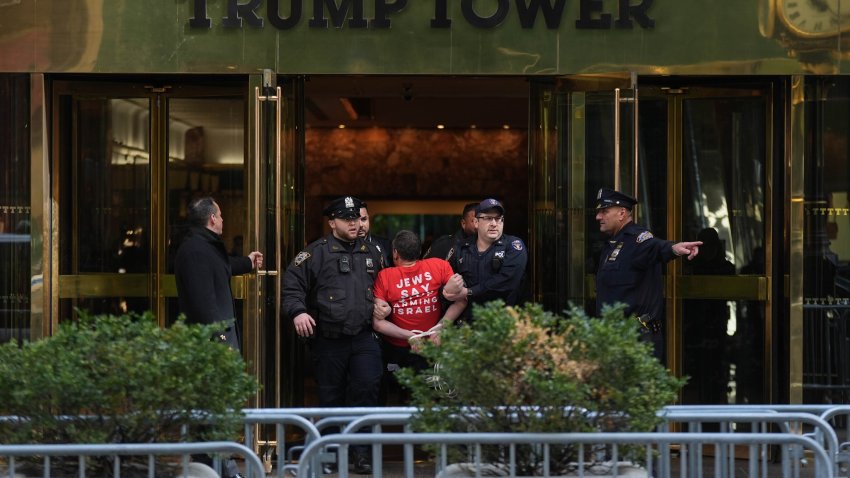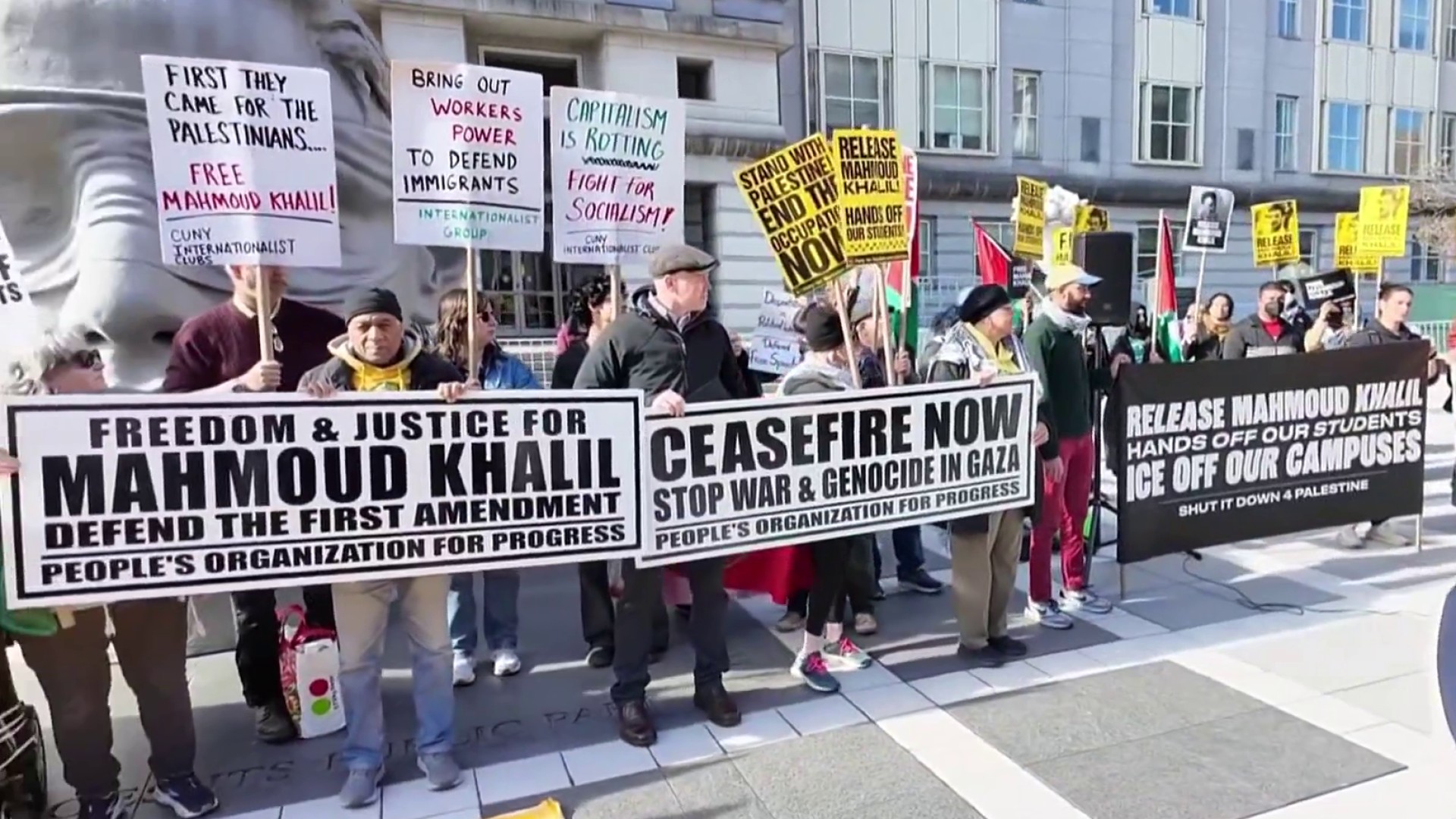An immigration judge on Friday ruled that the Trump administration can deport Columbia University graduate student Mahmoud Khalil just a month after his arrest prompted national outrage and marked the start of the federal government’s broader crackdown on foreign students.
The Louisiana judge affirmed the Trump administration's controversial argument that Khalil's beliefs threaten national security and therefore justify his deportation.
Watch NBC6 free wherever you are
“The court will sustain charge of removability," Judge Jamee Comans said.
Khalil, 30, has until April 23 to file for relief and can remain in the United States until then. A federal judge in New Jersey has also temporarily barred Khalil’s deportation while he fights a similar challenge there.
Get local news you need to know to start your day with NBC 6's News Headlines newsletter.
He addressed the court after the ruling and denounced the decision.
“There's nothing more important than due process and fundamental fairness. ... Neither of those principles were present today," he said. "I just hope that the urgency that you deemed fit for me are afforded to the hundreds of others who have been here without hearing for months."

His legal team said it will "continue working tirelessly until Mahmoud is free."
“Today, we saw our worst fears play out: Mahmoud was subject to a charade of due process, a flagrant violation of his right to a fair hearing, and a weaponization of immigration law to suppress dissent," his attorney, Marc van der Hout, said in a statement. "This is not over, and our fight continues."
The Department of Homeland Security and the White House did not immediately return requests for comment.
A spokesperson for Columbia University declined to comment.
Khalil, who helped lead student protests against the war in Gaza at the Ivy League school last year, was detained on March 8 by federal authorities at his university-owned apartment complex in New York City. He has since been in custody at a Louisiana immigration detention center.
The Trump administration has maintained publicly that it has the authority to deport Khalil — a 30-year-old green card holder —because he "led activities aligned to Hamas, a designated terrorist organization."

The administration also repeatedly cited a rarely invoked provision from a 1952 law — the Immigration and Nationality Act — which allows the secretary of state to deport noncitizens if their presence in the country threatens U.S. foreign policy.
Lawyers for the government have also alleged that Khalil withheld information about his affiliation with certain organizations and failed to disclose in his permanent residency application that he was previously employed at the Syria Office in the British Embassy in Beirut.
The judge pressed the administration to submit evidence supporting their claims and justification for Khalil's deportation by Wednesday.
Secretary of State Marco Rubio responded Wednesday evening with a brief memo obtained by NBC News that cites Khalil’s beliefs in justifying his deportation.

Rubio said that while Khalil’s "past, current or expected beliefs, statements, or associations that are otherwise lawful," the provision allows Rubio alone to "personally determine" whether Khalil should be allowed to stay in the country.
Comans said Friday that the memo deemed Khalil removable.
Rubio — who is a child of Cuban immigrants — said last month that the State Department had revoked more than 300 student visas and would continue to do so.
According to an NBC News analysis, as of Wednesday, officials had revoked the visas of foreign students — many of whom are Middle Eastern — in at least 29 states.
Video of the March arrest of a Tufts University student, Rumeysa Öztürk, showed several plainclothes Department of Homeland Security agents surrounding her, grabbing her wrists, and moving her into an SUV while she screamed out in confusion. Her lawyers argue that she was targeted for writing an opinion piece in her school newspaper that criticized Tufts' response to the war in Gaza.
An international student at the University of Florida was deported late last month after he was arrested and accused of traffic violations, his family and local officials said.
DHS announced a new task force on Wednesday to monitor the social media activity of immigrants, including foreign students, for antisemitism. Three sources familiar with the operation told NBC News that officials will screen approximately 1.5 million international students for potential grounds to revoke their visas.
Khalil's arrest prompted a handful of protests at Columbia, the epicenter of last year's demonstrations, and around New York City, including at Trump Tower.

Columbia students who spoke with NBC News since Khalil's arrest said that speaking out had become "too dangerous" at the university, once known as a venue for challenging authority.
The sweeping measures against international students are one of several ways the Trump administration has used the federal government's powers to exert leverage on academic institutions.
The administration has also revoked hundreds of millions of dollars in federal funding to several universities in recent weeks — including Columbia, Harvard and Princeton — citing dissatisfaction with how they handled last year’s protests against the war in Gaza.
NBC News' Julia Ainsley contributed.
This story first appeared on NBCNews.com. More from NBC News:



